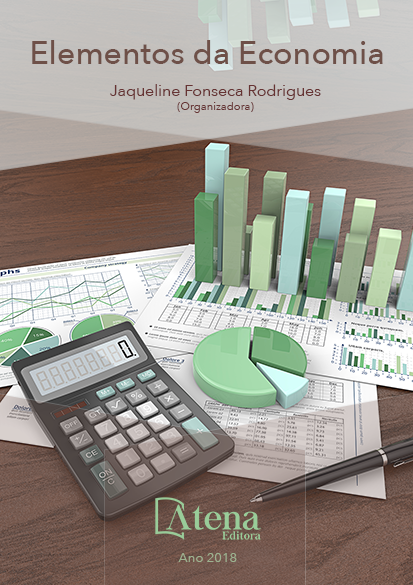
REVOLUÇÃO INDUSTRIAL NA INGLATERRA: BERÇO DE TRANSFORMAÇÕES SOCIOECONÔMICAS QUE INFLUENCIARAM TODA A HUMANIDADE
Pretende-se neste artigo abordar
aspectos que circundam o entendimento
acerca da primeira Revolução Industrial na
Inglaterra e seus desdobramentos de cunho
econômico, político e social, bem como a visão
de economistas a respeito dos acontecimentos
deste período. Nota-se que em meados do
século XVIII a Inglaterra vivenciou mudanças
de caráter primordialmente econômicos que
viriam a afetar os mais diversos aspectos da
história em um momento conhecido como a
Revolução Industrial. Neste período, inovações
tecnológicas no âmbito industrial e agrícola
na Inglaterra. A inserção de máquinas no
processo produtivo gera progressivos ganhos
de produtividade, tornando seu bem final
altamente competitivo nos mais diversos
mercados. Entretanto, a inserção da política
de cercamentos, bem como o surgimento
do capitalismo industrial influem diretamente
no êxodo urbano, e consequente inchaço
populacional nas grandes cidades. A inserção da
maquinofatura traz alternância com amplitudes
tangíveis a aspectos sociais, especificamente
no escopo psicológico do trabalhador, que perde
sua autoridade, conhecimento e arbitrariedade
dentro do processo produtivo, tornandose
estritamente vinculado a um capitalista
que o insere em uma linha de produção,
deturpando seu conhecimento e o vinculando
a uma única e repetitiva tarefa em péssimas
condições de trabalho, sem direitos e a uma
remuneração baixíssima. Portanto, entendese
que a Revolução Industrial representa uma
ruptura total com diversos pontos produtivos
e econômicos, tornando-se primordial para
o estabelecimento do capitalismo industrial
e para impactos profundos na relação entre
o trabalhador e o capital e, desta forma, de
evidente importância no debate do capitalismo
industrial e história econômica geral.
REVOLUÇÃO INDUSTRIAL NA INGLATERRA: BERÇO DE TRANSFORMAÇÕES SOCIOECONÔMICAS QUE INFLUENCIARAM TODA A HUMANIDADE
-
DOI: 10.22533/at.ed.15518201212
-
Palavras-chave: Revolução Industrial. Inovações. Transformações Socioculturais.
-
Keywords: Industrial Revolution. Innovation. sociocultural transformations
-
Abstract:
This article aims to address
aspects that surround the understanding of the
first Industrial Revolution in England and its
economic, political and social developments,
as well as the economists’ view of the events
of this period.It is noted that in the middle of
the eighteenth century England experienced
primarily economic changes of character that
would affect the most diverse aspects of history
at a time known as the Industrial Revolution. In this period, technological innovations
in the industrial and agricultural scope in England. The insertion of machines in the
productive process generates progressive gains of productivity, making it´s final
good highly competitive in the most diverse markets. However, the insertion of the
enclosure policy as well as the emergence of industrial capitalism directly influence the
urban exodus, and consequent population swelling in the big cities. The insertion of
“maquinofatura” brings alternation with amplitudes tangible to social aspects, specifically
in the psychological scope of the worker, who loses his authority, knowledge and
arbitrariness within the productive process, becoming strictly linked to a capitalist who
inserts him into a production line, Distorting his knowledge and linking him to a single
and repetitive task in bad working conditions, without rights and very low remuneration.
Therefore, it is understood that the Industrial Revolution represents a total rupture
with diverse productive and economic points, being essential for the establishment of
industrial capitalism and for deep impacts on the relation between the worker and the
capital and, therefore, of evident importance in the debate of industrial capitalism and
general economic history.
-
Número de páginas: 15
- Michele Lins Aracaty e Silva


